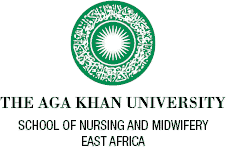Masters of Science in Advanced Practice Midwifery (MSc-APM)
The MSc-APM is a two-year programme to prepare advanced practice midwives who will develop innovative, practical solutions to complex health problems from a scientific perspective.
Upon graduation, it is expected that graduates will become leaders with decision-making skills in the areas of advanced clinical practice and midwifery education. As advanced midwifery practitioners, they will be able to provide care in an independent capacity in a number of settings for various patients’ populations. The Programme will also provide midwives, the necessary skills to conduct research that will contribute to the body of knowledge defining the discipline of midwifery.
The MSc-APM Programme will prepare graduates who will be able to:
Incorporate a scientific, deliberate approach to advanced midwifery practice and clinical scholarship to improve the health and health care of childbearing women and babies, with a special emphasis on rural and vulnerable populations
Demonstrate advanced skills in communication, critical thinking, translational research and midwifery practice to address the quality of health and safety of child bearing women and babies with an emphasis on achievement of SDG goal 3 and reduction in maternal and infant mortality and morbidity
Implement the advanced practice midwifery role as practitioner, leader, innovator, clinical scholar, healthcare advocate and collaborator to address the current and future health and healthcare delivery needs at the individual, group, population and system level
Demonstrate advanced practice leadership through the incorporation of ethical, cultural, social, political and economic strategies to transform health systems
Evaluate, synthesize and apply scientific evidence from multiple disciplines to improve and transform health care and health care outcomes.
Use a multidisciplinary, collaborative approach to enhance gender empowerment and decrease health disparities in diverse and vulnerable populations. Apply contemporary knowledge from different sources and the best available evidence for professional decision-making and during practice.


